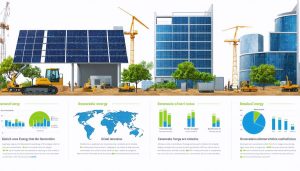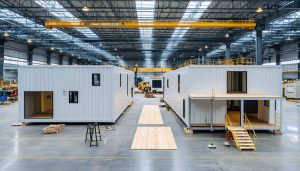
How Project Finance Models Are Revolutionizing Green Construction ROI
Project finance modeling revolutionizes how renewable energy initiatives transform from concept to reality, driving the $366 billion global renewable energy market while reshaping traditional financing energy efficiency projects. Advanced financial modeling techniques now enable stakeholders to precisely evaluate project viability, optimize capital structures, and mitigate risks across solar, wind, and other renewable installations.
Modern renewable project finance demands …









